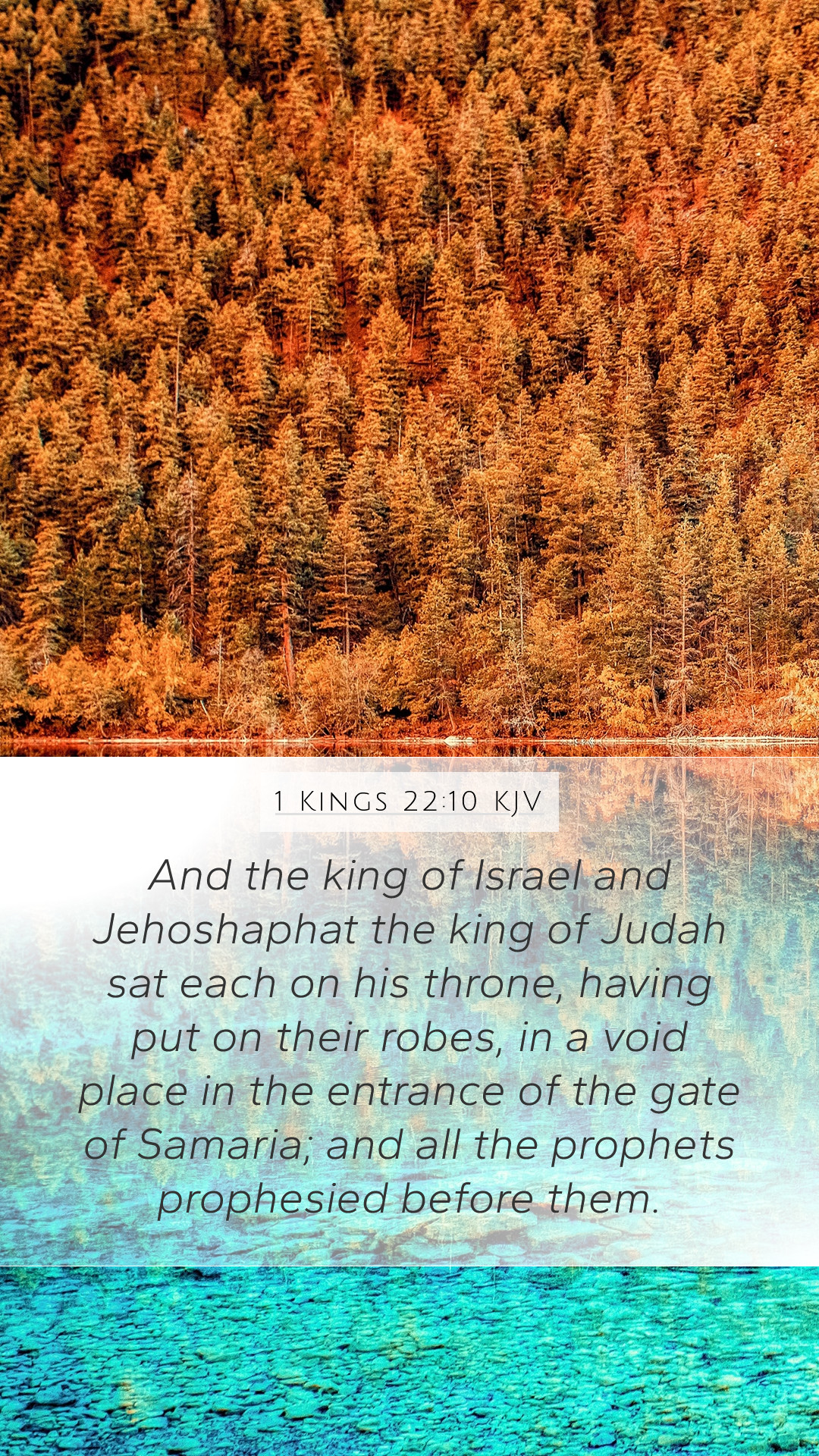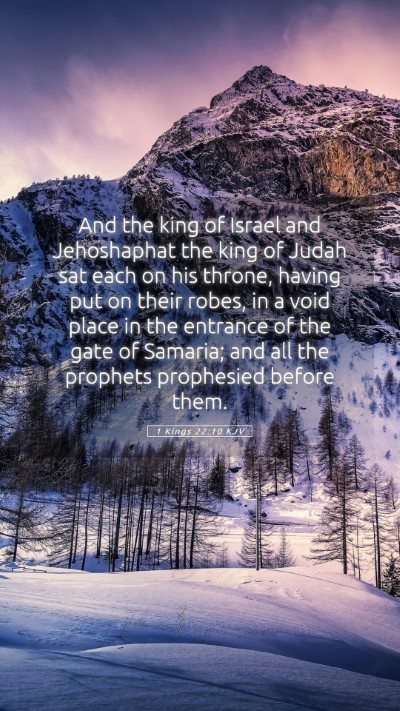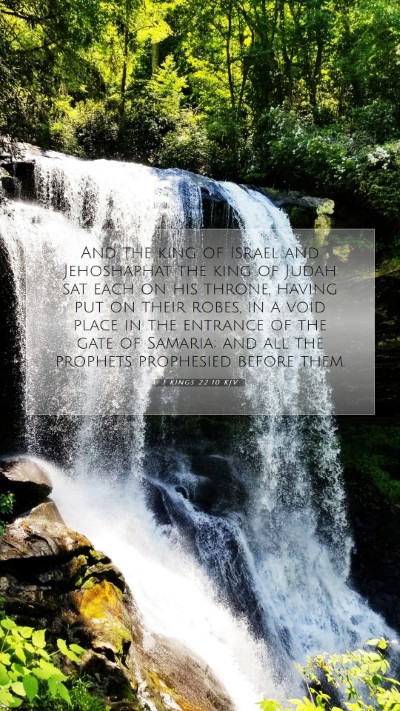Understanding 1 Kings 22:10 - Bible Verse Analysis
1 Kings 22:10 reads: "And the king of Israel and Jehoshaphat king of Judah sat each on his throne, having put on their robes in a void place in the entrance of the gate of Samaria; and all the prophets prophesied before them." This verse sets the stage for an important assembly of the kings and the prophets, central to understanding the dynamics of divine guidance versus human decision-making.
Overview of Bible Verse Meanings
This passage highlights a significant moment involving King Ahab of Israel and King Jehoshaphat of Judah as they seek guidance for their military endeavors. The act of sitting on thrones symbolizes authority and the expectation of implementing advice received from the prophets. The setting at the gate of Samaria indicates a public and official context for their deliberations.
Key Themes and Insights
- Prophetic Authority: The presence of prophets signifies the expectation that their counsel will be sought in critical governmental matters.
- Public Accountability: Gathering at the gate suggests an awareness that decisions made here would impact not only the two kings but also the people they govern.
- Spiritual Climate: The collaboration between the two kings reflects a broader spiritual context where divine direction is needed amid political alliances.
Bible Verse Interpretations
Matthew Henry, in his commentary, emphasizes the contrast between the prophetic voices and the kings' responses. While the prophets proclaimed general goodwill, the heart of Ahab remained disobedient towards God's commandments. This highlights the significance of discerning genuine prophecies from those that are simply favorable.
Albert Barnes draws attention to the nature of the prophetic artifice prevalent in this scene. He suggests that these prophets often catered to the kings' desires rather than delivering true messages from God, illustrating a potential moral failing in leadership.
Adam Clarke points out that the gathering was a theatrical display aimed at lending legitimacy to the decisions that followed. This also suggests a pattern seen in human leadership where formality sometimes overshadows actual divine input.
Significance and Exegesis
The significance of this verse extends beyond its immediate political implications; it serves as a profound teaching moment about seeking truth over convenience. In today's context, this echoes in Bible study groups and personal devotions where the challenge is to discern genuine divine guidance over popular opinion or emotional appeasement.
Applying the Verse to Daily Life
- Seek Divine Guidance: Just as Ahab and Jehoshaphat sought counsel, believers are encouraged to earnestly seek God’s guidance through prayer and scripture when facing choices.
- Discernment is Key: The need for discernment is critical in assessing advice, whether from prophetic messages or modern advice; it’s essential to understand the distinction between what is popular and what is right.
- Leadership Responsibility: Those in positions of authority are called to uphold righteousness, ensuring that their decisions align with God’s will rather than merely fulfilling their desires.
Cross References
- 1 Kings 22:6: Highlights the summoning of prophets for counsel.
- 2 Chronicles 18: Provides parallel accounts of this narrative with additional details about the prophetic interactions.
- Jeremiah 23:16: Warns against prophets who speak from their own hearts rather than God’s truth.
Conclusion
1 Kings 22:10 serves as a profound point of reflection in our understanding of the role of divine guidance amidst human decision-making. Through the insights drawn from public domain commentaries and the implications of the historical context, believers are reminded of the importance of seeking genuine counsel that aligns with God’s word in their daily lives.
For those who study scriptures, this verse invites an exploration of the dynamics between leadership, prophecy, and the pursuit of righteousness, hallmarks of biblical exegesis and commentary traditions. Understanding such passages enriches one’s Bible study experience and equips believers to navigate the complexities of faith in today’s world.


